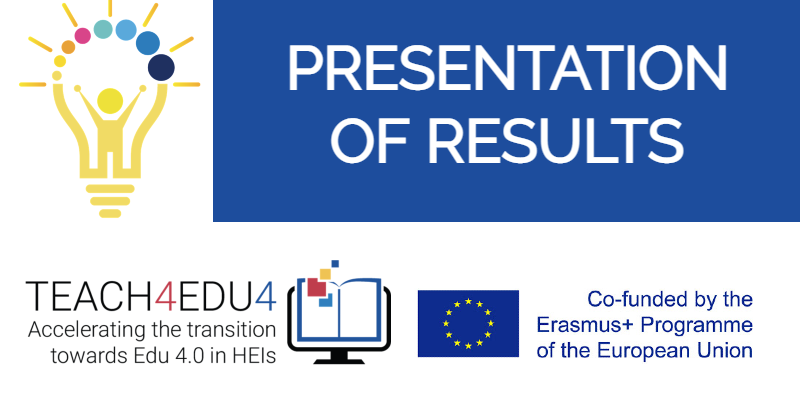Project is in progress already 10 months – 20 more months to go. In June 2021 the second transnational project meeting was planned, Meet4Edu4 in UK but due to the epidemiological situation and the prescribed measures in the UK it was impossible to meet. It’s agreed to meet in September 2021 in the most approachable partner country. Hopefully the meeting in September 2021 will be held at least in hybrid variant. To bridge the lack of physical contact, short frequent online meetings have been organized to keep in track and clarify open issues.
First interim report for period November 2020-July 2021 was finished and submitted. With this project entered second reporting phase in August 2021, which lasts until February 2022.
In the 1st reporting period responsible partner The OU finalized IO1 Catalogue of new forms of teaching, learning and assessment in Computer Science in Edu 4.0 and related teachers’ skills and competences with partners. It was added in the Erasmus+ project results platform and disseminated through the EDEN NAP webinar and on the conference CALRG 2021 Online Conference.
Within IO2 Learning design models which started in March 2021 led by UNIZG, it’s planned to integrate IO1 results with existing learning design (LD) models based on Open University Learning Design (OU LD). Based on additional literature review, focus groups and inputs from IO1, draft templates have been created for computer science (CS) courses (light, practice (project), full Education 4.0). A new tool based on the templates will be developed online and released until the end of September 2021. With the tool teachers will be able to plan activities, the way they will teach (online, f2f), assign student efforts, etc. The tool will also integrate learning analytics dashboards from IO4.
IO3 Collaborative Teaching Methods for Joint Creative Classrooms let by UNIVAQ, started in June 2021 and worked on identification and creation of JCC process with 40+ possible topics for JCC. A series of online meetings between teachers were organized and facilitated by Teach4Edu4 partners with the purpose that teachers meet and define student workload, curriculum, distribute their work, agree on how they will conduct JCCs etc.
IO4 Guidebook on the use of learning data led by TU started in March 2021 is also in progress. It started with a presentation of Guidebook on the use of learning data to create evidence-based learning on EDEN conference webinar 7.4.2021. (150 participants online). Detailed plan of activities for the IO4 has been done, literature review and analysis of best practices in implementation of LA and using dashboards. Teach4Edu4 project will use a part of the BDP approach (Bonding Design planning holistic approach) and a tool developed under IO2 that will enable teachers to plan learning design of their JCCs, calculate workload, ratio between online and f2f activities, and to map the activities to OU LD framework.
With associated partners (companies) 22 agreements have been signed. Associated partners / companies have been a part of focus groups and have learned how education 4.0 changes the way we teach and learn in computer science. Based on the lessons learned, some of them offered to get further involved in JCCs as lecturers, or to step in with some real-life examples that could be studied within JCCs.
Conference papers written in cooperation between partners have been submitted, all at international events/conferences: “When industry meets Education 4.0: What do Computer Science companies need from Higher Education?” submitted and accepted on TEEM conference, “Education 4.0 and Computer Science: A European perspective ”, submitted and accepted on CECIIS conference, “Catalogue of new forms of teaching, learning and assessment in Computer Science in Edu 4.0 and related teachers’ skills and competences“, was presented at the CALRG conference. The findings are therefore available to a wider audience, other practitioners and researchers offering the insight into the newest trends in computer science and Education 4.0 that can be widely used to develop and pilot on-line or blended courses in European universities.
